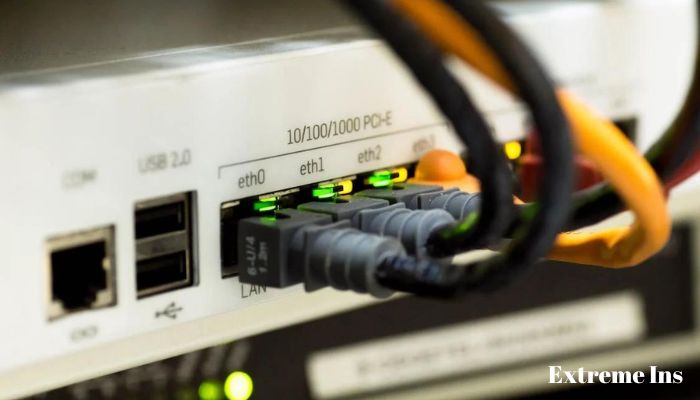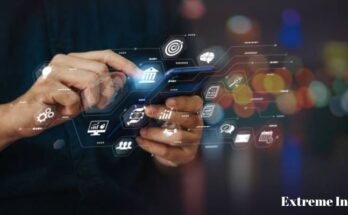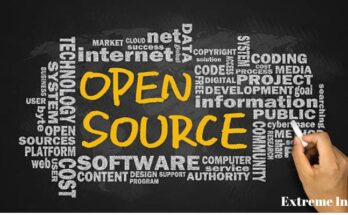Exploring the Transformative Power of Internet of Things: How IoT Is Revolutionizing Industries and Shaping Our World
In recent years, the Internet of Things (IoT) has emerged as a transformative force, reshaping industries and revolutionizing the way we interact with the world around us. From smart homes to industrial automation, IoT technologies are increasingly pervasive, offering unprecedented opportunities for innovation and efficiency. In this article, we delve into the transformative power of IoT, exploring its impact across various industries and its potential to shape the future.
Understanding IoT
At its core, IoT refers to the network of interconnected devices embedded with sensors, software, and other technologies that enable them to collect and exchange data. These devices can range from everyday objects such as household appliances and wearable devices to complex machinery and infrastructure components.
The key principle behind IoT is connectivity. By connecting these devices to the internet and to each other, IoT enables the seamless exchange of data and the automation of processes, leading to greater efficiency, productivity, and insights.
Transforming Industries

1.Healthcare
In the healthcare industry, IoT technologies are revolutionizing patient care and treatment. Connected medical devices, such as remote monitoring systems and wearable health trackers, allow healthcare providers to remotely monitor patients’ vital signs and track their health metrics in real-time. This not only enables early detection of health issues but also facilitates personalized treatment plans and improves patient outcomes.
2.Manufacturing
IoT is also transforming the manufacturing sector, driving the emergence of smart factories and intelligent supply chains. By connecting machinery, equipment, and inventory systems, manufacturers can optimize production processes, reduce downtime, and enhance product quality. IoT-enabled predictive maintenance allows manufacturers to detect and address equipment failures before they occur, minimizing costly disruptions and maximizing operational efficiency.
3.Transportation
In the transportation industry, IoT is reshaping the way goods and people are moved from one place to another. Connected vehicles equipped with sensors and communication technologies can provide real-time data on traffic conditions, vehicle performance, and driver behavior. This enables more efficient route planning, improved fuel efficiency, and enhanced safety on the roads. Furthermore, IoT-enabled logistics and fleet management systems streamline the movement of goods, reducing delivery times and costs.
4.Agriculture
IoT is revolutionizing agriculture by enabling precision farming techniques that optimize crop yields and resource usage. IoT sensors deployed in the field can monitor soil moisture levels, temperature, and nutrient levels, allowing farmers to make data-driven decisions about irrigation, fertilization, and pest control. By harnessing this data, farmers can increase crop productivity, reduce water and chemical usage, and minimize environmental impact.
5.Smart Cities
In urban environments, IoT is driving the development of smart cities that are more efficient, sustainable, and livable. Connected infrastructure systems, such as smart grids, intelligent traffic management systems, and waste management systems, enable city planners to optimize resource allocation, reduce energy consumption, and improve public services. IoT sensors deployed throughout the city can provide valuable data on air quality, noise levels, and traffic patterns, helping city officials make informed decisions about urban planning and development.
Shaping Our World

The transformative power of IoT extends beyond individual industries, shaping our world in profound ways. By enabling greater connectivity, automation, and data-driven decision-making, IoT has the potential to address some of the most pressing challenges facing society, from climate change and resource scarcity to healthcare access and urbanization.
1.Environmental Sustainability
IoT technologies play a crucial role in promoting environmental sustainability by enabling more efficient use of resources and reducing waste. Smart energy management systems optimize energy consumption in buildings and homes, while IoT-enabled water management systems monitor and conserve water resources. Additionally, IoT sensors deployed in natural environments can provide valuable data on biodiversity, climate change, and ecosystem health, informing conservation efforts and environmental policy decisions.
2.Digital Transformation
IoT is driving a digital transformation across industries, paving the way for new business models, revenue streams, and customer experiences. By harnessing the power of data and connectivity, companies can unlock new opportunities for innovation and growth. From predictive maintenance and personalized marketing to connected products and services, IoT is reshaping the way businesses operate and interact with their customers.
3.Societal Impact
The widespread adoption of IoT technologies has profound implications for society, from privacy and security concerns to issues of equity and access. As more devices become connected and data-driven, questions arise about data privacy, cybersecurity, and the ethical use of technology. Moreover, the digital divide persists, with disparities in access to technology and internet connectivity exacerbating existing inequalities. Addressing these challenges requires a holistic approach that balances innovation with accountability, ensuring that the benefits of IoT are shared equitably and responsibly.
Conclusion
The transformative power of IoT is undeniable, reshaping industries, driving innovation, and shaping the way we live and work. From healthcare and manufacturing to transportation and agriculture, IoT technologies are revolutionizing every aspect of our lives, offering unprecedented opportunities for efficiency, sustainability, and progress. As we continue to explore the potential of IoT, it is essential to consider the broader societal implications and ensure that its benefits are realized by all. By harnessing the transformative power of IoT responsibly, we can build a more connected, sustainable, and inclusive future for generations to come.



